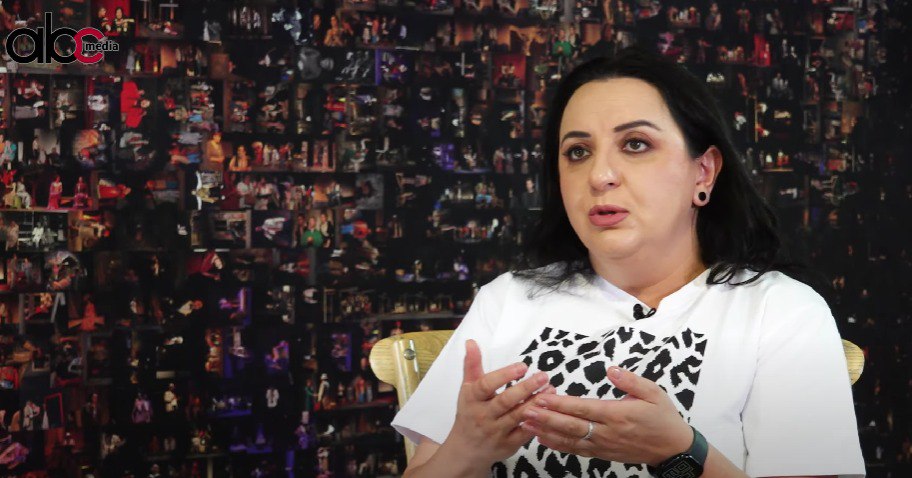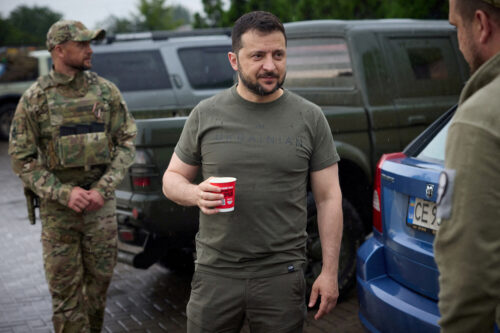
Tatev Ghazaryan: How can we forget that we had those victories? And, one day, God willing, we will have them again
ABC Interview’s guest was actor Tatev Ghazaryan. We talked with Tatev about current trends in the theater, TV series and the roles that the actress plays on the stage of the Hamazgayin Theater.
– Tatev, I know you have a new role. What is the play about?
– The play is called “The whelp”. It is about great love, which we really lack today. The events in the novel take place in the Soviet years. The characters are victims of repression. The novel is based on a true story. Unfortunately, today we only read about that kind of love in books. It is the life story of Sos Sargsyan’s sister. It is a true story and there are no exaggerations there at all.
– Recently, when people begin to talk about the war, many get upset and say that there is no need to dig into all that again and that it all hurts people. Do you think we should no longer talk about the war?
– You know, digging refers to something buried very deep. But we haven’t buried anything too deep so that we can dig it. Everything is still very fresh, how can we forget it? How can I forget that one of my students is still in captivity? We don’t know where he is, what has become of him, whether he is alive or not… How can one forget it?
– Is there a play about war in the repertoire?
– We have a play titled “Genesis of Victory”. It was put on in 2018 and is again based on a true story. The play ends with the liberation of Shushi, i.e., our victory. We have given that performance for years with pride and happiness. It’s included in the repertoire, and now causes a lot of pain. I can’t watch it without getting emotional. I myself don’t play in that performance, but I used to watch it with great pride and happiness. Now, no matter how many times I watch it, I get terribly emotional and sad. But we have it in the repertoire because it was a reality… How can we forget that we had those victories? And, one day, God willing, we will have them again.
-In the last 10-20 years, there have been TV series that were really good, but now the trend is going downward rather than upward. Would you agree that the quality of TV series has suffered?
– That is the case. I remember when they had just started filming TV series, and I was offered roles, the situation was much more interesting than what we have now. Now, however, there are TV series, consisting of 10-15 episodes, which are a bit more serious. In my opinion, the problem is mainly the script. One has no idea who the character he/she plays is.
– There are experts who say that good actors start acting unprofessionally after playing in bad TV series.
– It is already their decision and preference. Many people prefer to gain recognition at once, and TV series can bring recognition to an actor in one day. I am deeply convinced that this recognition can also disappear in one day. As soon as the TV series is over, that love and recognition may disappear, and the actor may be forgotten at once. That success and recognition are easily given and easily lost. It may be much more difficult in the theater, where there is a smaller audience, but here you create an audience that is dear to you and who loves you. I appreciate it very much when they say they know me from the theater.
– How important are the relations between co-actors in the theater?
– I always say that even if they are not friends in life, they should become friends during rehearsals; they should spend a lot of time with each other; they should drink coffee with each other, talk to each other, be interested in each other’s personal lives, so that they can be organic on stage.
– And what is going on behind the scenes? What work is being done that is not visible to us?
– Look, you come and enjoy the two-hour performance, but those two hours cost us three months of hard work—really hard work. If you don’t love the theater with overwhelming love, if you don’t devote yourself, you won’t be able to give those two hours to the audience. We spend sleepless nights; our rehearsals end at 1:00, and we leave the theater at 1:30. Psychological pressure, hard physical work… The theater nowadays includes a new package: the body and the speech, and the soul and the movement.
– Tatev, as far as I know you live in Yerevan; do the problems facing our city cause you concern?
– In general, the overall situation in the country is very bad. When these problems are solved, I will be able to notice the rest. I hope that time will come when I will be able to speak about the problems of Yerevan or the theater. We have suffered much more serious losses that we need to talk about and take care of. Ten years ago, I could talk about the problems in Yerevan or other problems, but now everything is so bad that I don’t even notice those kinds of problems. Our pain is much greater and much more intense…
Interview by Lena Gevorgyan


